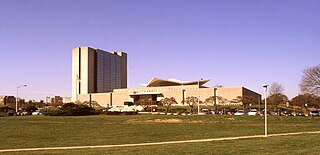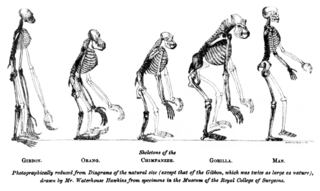
In vitro studies are performed with microorganisms, cells, or biological molecules outside their normal biological context. Colloquially called "test-tube experiments", these studies in biology and its subdisciplines are traditionally done in labware such as test tubes, flasks, Petri dishes, and microtiter plates. Studies conducted using components of an organism that have been isolated from their usual biological surroundings permit a more detailed or more convenient analysis than can be done with whole organisms; however, results obtained from in vitro experiments may not fully or accurately predict the effects on a whole organism. In contrast to in vitro experiments, in vivo studies are those conducted in animals, including humans, and whole plants.

Pharmacology is the branch of biology concerned with the study of drug action, where a drug can be broadly defined as any man-made, natural, or endogenous molecule which exerts a biochemical or physiological effect on the cell, tissue, organ, or organism. More specifically, it is the study of the interactions that occur between a living organism and chemicals that affect normal or abnormal biochemical function. If substances have medicinal properties, they are considered pharmaceuticals.

Toxicology is a discipline, overlapping with biology, chemistry, pharmacology, and medicine, that involves the study of the adverse effects of chemical substances on living organisms and the practice of diagnosing and treating exposures to toxins and toxicants. The relationship between dose and its effects on the exposed organism is of high significance in toxicology. Factors that influence chemical toxicity include the dosage, route of exposure, species, age, sex, and environment. Toxicologists are experts on poisons and poisoning.
Biophysics is an interdisciplinary science that applies approaches and methods traditionally used in physics to study biological phenomena. Biophysics covers all scales of biological organization, from molecular to organismic and populations. Biophysical research shares significant overlap with biochemistry, molecular biology, physical chemistry, physiology, nanotechnology, bioengineering, computational biology, biomechanics, developmental biology and systems biology.

The history of biology traces the study of the living world from ancient to modern times. Although the concept of biology as a single coherent field arose in the 19th century, the biological sciences emerged from traditions of medicine and natural history reaching back to ayurveda, ancient Egyptian medicine and the works of Aristotle and Galen in the ancient Greco-Roman world. This ancient work was further developed in the Middle Ages by Muslim physicians and scholars such as Avicenna. During the European Renaissance and early modern period, biological thought was revolutionized in Europe by a renewed interest in empiricism and the discovery of many novel organisms. Prominent in this movement were Vesalius and Harvey, who used experimentation and careful observation in physiology, and naturalists such as Linnaeus and Buffon who began to classify the diversity of life and the fossil record, as well as the development and behavior of organisms. Antonie van Leeuwenhoek revealed by means of microscopy the previously unknown world of microorganisms, laying the groundwork for cell theory. The growing importance of natural theology, partly a response to the rise of mechanical philosophy, encouraged the growth of natural history.

The United States National Library of Medicine (NLM), operated by the United States federal government, is the world's largest medical library.
Springer Science+Business Media or Springer, part of Springer Nature since 2015, is a global publishing company that publishes books, e-books and peer-reviewed journals in science, humanities, technical and medical (STM) publishing. Springer also hosts a number of scientific databases, including SpringerLink, and SpringerImages. Book publications include major reference works, textbooks, monographs and book series; more than 168,000 titles are available as e-books in 24 subject collections. Springer has major offices in Berlin, Heidelberg, Dordrecht, and New York City.
Molecular medicine is a broad field, where physical, chemical, biological, bioinformatics and medical techniques are used to describe molecular structures and mechanisms, identify fundamental molecular and genetic errors of disease, and to develop molecular interventions to correct them. The molecular medicine perspective emphasizes cellular and molecular phenomena and interventions rather than the previous conceptual and observational focus on patients and their organs.
Current Protocols is a series of laboratory manuals for life scientists. The first title, Current Protocols in Molecular Biology, was established in 1987 by the founding editors Frederick M. Ausubel, Roger Brent, Robert Kingston, David D. Moore, Jon Seidman, Kevin Struhl, and John A. Smith of the Massachusetts General Hospital Department of Molecular Biology and the Harvard Medical School Departments of Genetics and Biological Chemistry, along with Sarah Greene of Greene Publishing Associates The Current Protocols series entered into a partnership with by Wiley-Interscience, John Wiley and Sons, and was then acquired by Wiley in 1995, and has continued to introduce additional titles. Scientists contribute methods that are peer-reviewed by one of 18 editorial boards. The core content of each title is updated, and new material is added, on a quarterly basis. In 2009, the Current Protocols website was launched. The site features online versions of all of the texts, research tools, video protocols, and a blog. As of March, 2018, several Current Protocols titles are indexed in MEDLINE and searchable by PubMed: CP Molecular Biology, CP Immunology, CP Cell Biology, CP Protein Science, CP Microbiology.

Nature Protocols, published by the Nature Publishing Group, is an on-line scientific journal publishing methods in a recipe-style format. The journal was launched in June 2006 and the content includes both classical methods and cutting-edge techniques relevant to the study of biological problems. The content on this site is divided into "Nature Protocols" and the "Protocol Exchange".
Cold Spring Harbor Laboratory Press was founded in 1933 to aid in Cold Spring Harbor Laboratory's purpose of furthering the advance and spread of scientific knowledge.
Kürşad Türkşen is a senior scientist in chronic disease at Ottawa Health Research Institute and an assistant professor, biochemistry, University of Ottawa. Türkşen is also the editor-in-chief for the journal Stem Cell Reviews and Reports, published by Humana Press, and is an executive board member for Springer Protocols, an online database of research protocols published by Springer Science+Business Media. Türkşen studies skin cells at the molecular level hoping to develop new treatments for skin conditions, wounds, burns, and genetic skin diseases.
Ali Said Faqi is a Somali scientist specializing in toxicology and a diplomat. A leading researcher in his field, he has numerous scientific papers and also authored a book entitled A Comprehensive Guide to Toxicology in Preclinical Drug Development. In 2013, he was appointed as the Somali Ambassador to Benelux and European Union.
Elsevier BIOBASE is a bibliographic database covering all topics pertaining to biological research throughout the world. It was established in the 1950s in print format as Current Awareness in Biological Sciences. Temporal coverage is from 1994 to the present. The database has over 4.1 million records as of December 2008. More than 300,000 records are added annually and 84% contain an abstract. It is updated weekly.
Wang Aiping is a Chinese pharmacologist and toxicologist. For over 20 years, Wang has been researcher in drug and toxicity testing and has experience in new drug development. Since 2001, he has been Director of Drug Safety Evaluation and Research at the Academy of Medical Sciences, Peking Union Medical College and was also made General Manager of Technological development at Peking Union Medical College's Jianhao Pharmaceutical Technology Development Co., Ltd.










